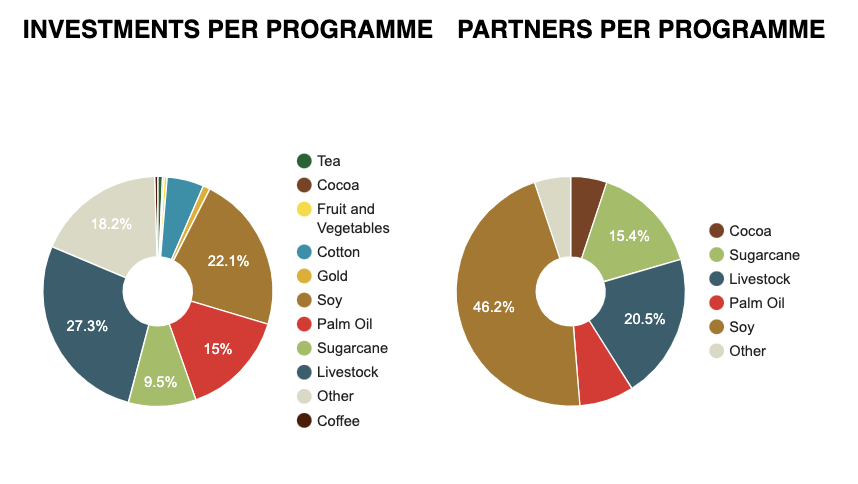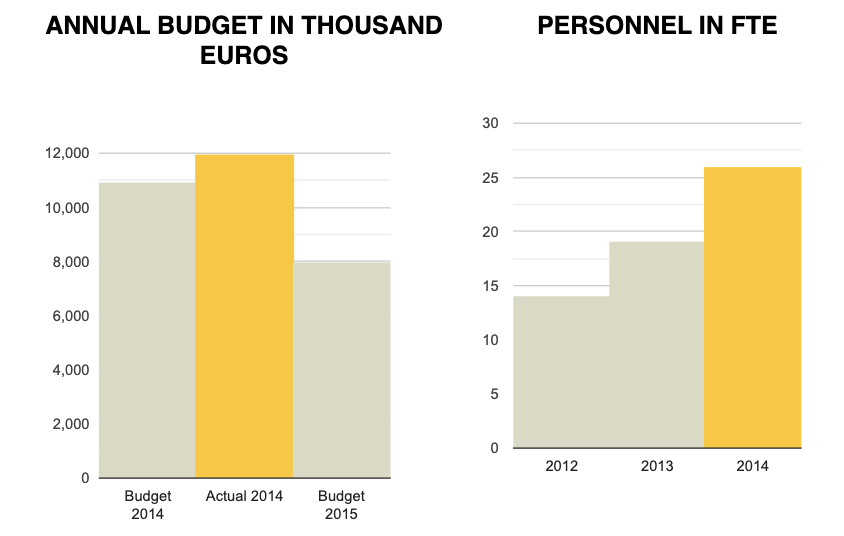REGIONAL COMMODITY PROGRAMMES
With the biggest producer companies in the region committed to integrating sustainability targets into their business plans, Solidaridad is aiming to bring almost 1 million hectares under sustainable management.

The positive impact of the tea programme in Argentina has paved the way to start up a producer support and local market development intervention to scale-up results and replicate the business model region wide.

The partnership between Solidaridad and Raízen (a joint venture of Cosan/Shell), the largest sugar and ethanol company in the world, has taken a big step forward with the launch of ELO, its new sustainability programme aimed at its 3200 independent suppliers.

Partner organizations ADM and Agropalma are increasingly moving towards sustainability certification, creating opportunities to play a role in their smallholder suppliers’ development and contribute to social and environmental compliance, while creating rural employment and significantly raising household revenues.

Solidaridad’s partnership with Cargill and Mondelez gives us the opportunity to pioneer a landscape approach and develop the business case for sustainable cocoa production in the Amazon region, focused on smallholder producers, using the Rural Horizons methodology.

In 2014 Solidaridad and leading Dutch dairy producer FrieslandCampina Riedel BV (FCR) launched a four-year, joint programme to improve the sustainability of fruit production around the globe. The orange juice sector in Brazil was identified as a priority target, resulting in the development of a Rural Horizons toolset for citrus.

The Rural Horizons online self-assessment guide was distributed to and completed by 192 small cotton farmers linked to cooperatives. Data from 229 producers has been combined with the feedback from a first round of surveys in 2013 in a single database available for group analysis and 229 individual road maps have been generated.

Two years ago the town of Misa Rumi was mostly inhabited by older women whose children were forced to migrate to distant cities for work. Today the opportunity to engage in ecological gold production is drawing young people to the area.

The launch of the Global Roundtable on Sustainable Beef (GRSB) principles and criteria has brought Solidaridad once more to the fore as we continue our work to establish common ground in a crucial agricultural sector. The next challenge is to turn global principles into local practice.

EXTERNAL DEVELOPMENTS
Even with the recent drop in prices, agriculture continues to expand in the region. Farmers have made a mental shift to “how to double food production by 2025 in order to feed the world” while at the same time making good business decisions. Take soy, for example. China imported a record of 45 million metric tons from South America. This has put permanent pressure on land use, in particular where land prices are cheapest and the level of public control lowest.
Deforestation remains an important issue in relation to soy (and livestock). Paraguay is a clear example of this, as the local CSO Guyra reported a total of 466,892 hectares cleared in the Gran Chaco Americano during 2014, earning it the dubious title of regional deforestation “champion.” On the other hand, while deforestation increased over the last year, the deforestation rate in Mato Grosso decreased by 91% between 2004 and 2014, according to the Brazilian National Institute for Space Research (INPE). This 900,000 square-kilometre state within Amazônia Legal — the largest socio-geographic division in Brazil, containing all nine states in the Amazon basin grows over 8% of global soybean production, houses Brazil’s largest cattle herd, and produces 50% of the country’s cotton.
Mato Grosso a leading laboratory for responsible land change management because it provides:
- increased output on existing agricultural lands
- conversion of pastureland to cropland
- satellite monitoring of deforestation
- credit blacklisting for deforesting municipalities
- a new Forestry Law and improved local deforestation governance
- supply-chain governance with voluntary agreements, such a the Soy Moratorium, not to purchase crops from deforested lands.
Integrated approaches of this sort are also emerging in the north of the Amazon (Pará), the Cerrado (North/North-East Brazil), the Mata Atlántica (Brazil, Argentina, Paraguay). These are especially urgentin the Chaco forest, which is partly in Paraguay, Bolivia and Argentina. The basic issue is the same in all cases: how to increase production and exports by rethinking agricultural expansion, while safeguarding responsible landscape management.

RESULTS AND PARTNERSHIPS
In close collaboration with IDH, Solidaridad is leading the five-year, 9.5 million euro Soy Fast Track Fund (SFTF). This is our largest certification support programme to date in terms of land use with a targeted certified area of close to 1.2 million hectares by mid-2016. The main reason for this programme is the enormous impact that demand in the Netherlands has on the commodity. It has been calculated that the Dutch need as much land for soy production in Latin America as the entire surface of the Netherlands itself, i.e. 4 million hectares.
Focusing on the three major countries supplying Europe (Brazil, Argentina and Paraguay), the SFTF was established to ensure decent labour conditions, avoid deforestation, and facilitate smart, climate-friendly agriculture. The programme has been carried out into main phases:
- Phase 1 – 2011 to mid-2013 – The goal here was to persuade farmers to apply for global Roundtable for Responsible Soy (RTRS) certification. As a result, European RTRS purchases are growing, although so far success has been limited to the dairy industry.
- In phase 2 – 2013 to 2014 – The scope was broadened to include creating meaningful impact on the ground.
By the end of 2014, the programme had successfully contracted 27 projects (15 in Brazil, eight in Argentina and three in Paraguay), with a total budget of EUR 4,771,000. The target is 544,673 hectares certified under the RTRS standard, plus an additional 733,700 hectares, which is needed to achieve a “sustainably managed” status.
Since the end of 2014, SFTF has entered into a third phase: building larger risk-free, sustainable supply landscapes in the Amazon, the Cerrado and Chaco territories, which are benchmarked against national law and the sourcing guidelines of the European feed and vegetable oil industry: the European Feed Manufacturers’ Federation (FEFAC) and the federation representing the European Vegetable Oil and Proteinmeal Industry in Europe (FEDIOL). At Solidaridad we will support this strategy with an adjusted Rural Horizons tool set, creating an assurance system for larger farmer clusters in risk-prone production regions.

DONORS AND ORGANIZATIONS
In 2014, the Brazil and Paraguay country offices became fully operational, introducing six new colleagues to the South American team, which now amounts to 27 people. This has increased Solidaridad’s profile in the region and will enable new partnerships and funding opportunities at the national level. In this regard, besides IDH, major donors include the Dutch government (funding the global Farmer Support Programme), the Norwegian Government, Friesland Campina and Marks & Spencer.
With structures now in place, the South American region has started a “learning” agenda, which includes an in-depth field evaluation of the benefits and challenges associated with Solidaridad’s business models. This has already been conducted in the soy, gold and tea sectors in Brazil and Argentina. The overarching framework can in future be adapted to all commodities in the region.
Rural Horizons keeps growing as the in-house system for structuring continuous improvements on farms. Most progress has been made with sugarcane — in partnership with Raízen — while the first version for cocoa production in the Amazon has been developed and tested with support from Cargill. The adaptation of Rural Horizons for soy in Paraguay, which started in 2013, based on experience in Brazil with smallholders and mid-size farmers, opens up a broader panorama and more opportunities for applying Rural Horizons to soy production at the regional level.
Finally, a Latin America-wide gender study included ten projects in Mexico, Guatemala, Colombia, Perú, Bolivia, Paraguay and Argentina. Conclusions drawn from interviews and focus groups with a range of actors and stakeholders will be key in starting to address gender issues in Latin-America, in line with Solidaridad’s gender strategy.
